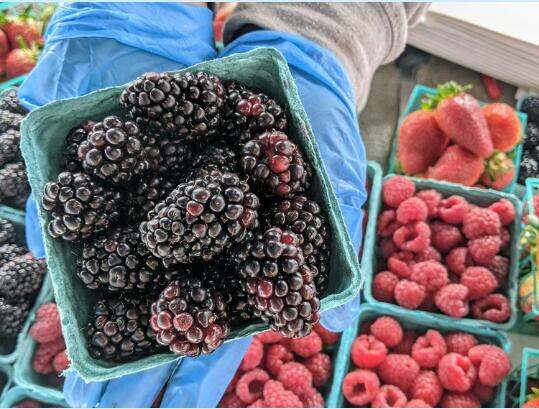
The Corporate Food System Is Broken
The vegetables in our supermarkets are grown on enormous farms, harvested before they are ripe, and transported thousands of miles.
The average item of produce on a supermarket shelf has traveled 1500 miles.
This way of farming is bad for our health, and the health of our planet.
Fast Facts
Big farms lose 1% of their topsoil every year. | |
Vegetables grown in poor soil are less nutritious and less flavorful. | |
Fewer than 1 in 10 adults eats enough vegetables | |
40% of all diagnosed cancers are linked to poor diet. |
Farmers’ Markets Are a Solution
 |  |  |
Healthy People Vegetables grown in healthy soil, and allowed to ripen in the field, are more nutritious. They’re also addictively flavorful. | Healthy Planet Small farms grow a wide variety of crops. Diversity in the field means less need for pesticides and fertilizers. (This is good for soil and streams, amphibians and birds). Selling locally means lower carbon emissions. | Healthy Communities Our markets gleaning partners bring unsold, (but still delicious), food to neighbors in need. Our compost hubs turn household food scraps into healthy soil—rather than greenhouse gases. All of our markets accept EBT. |